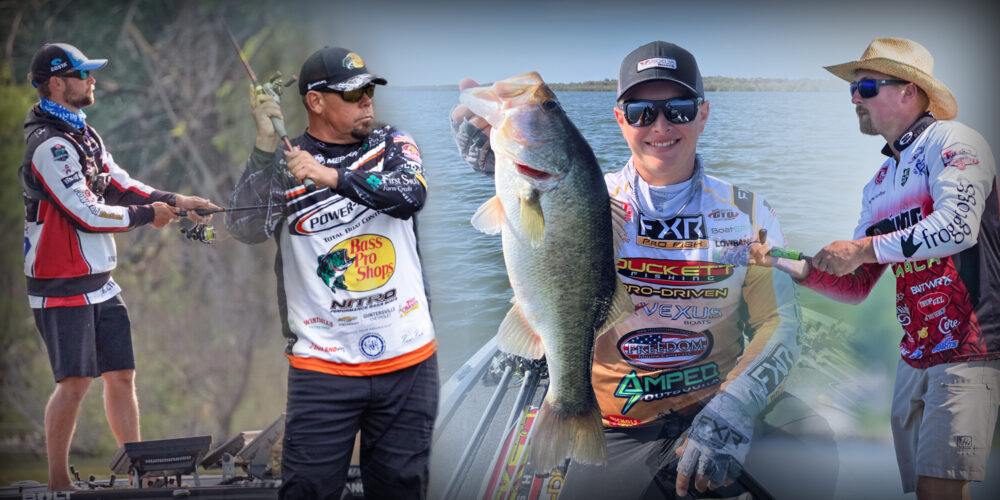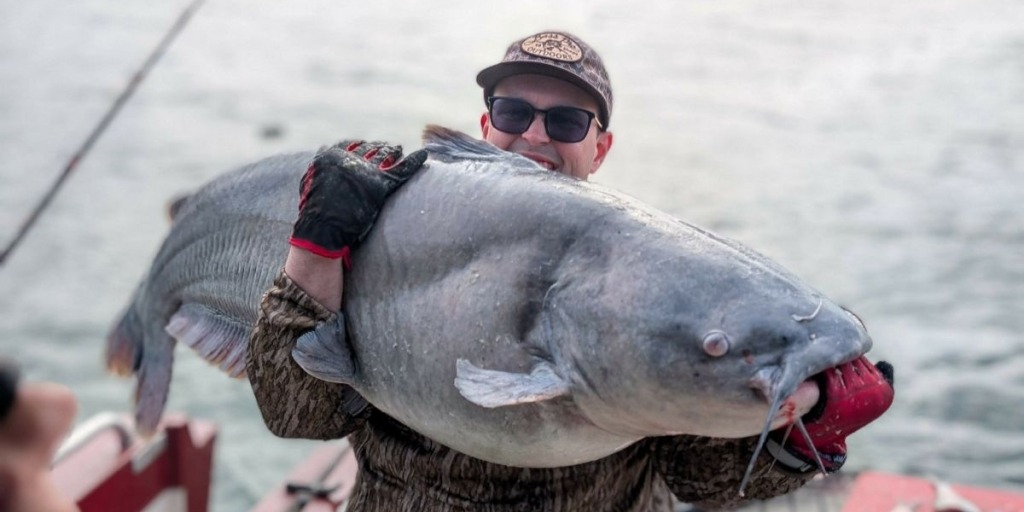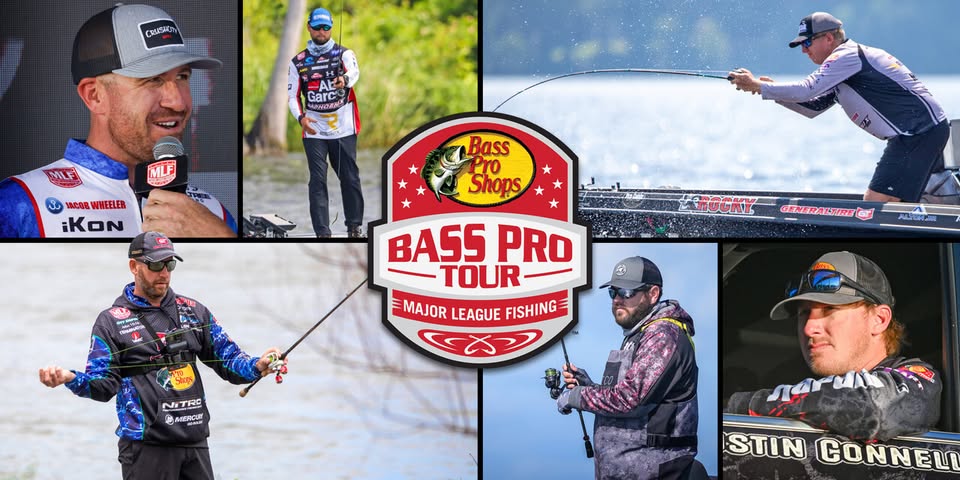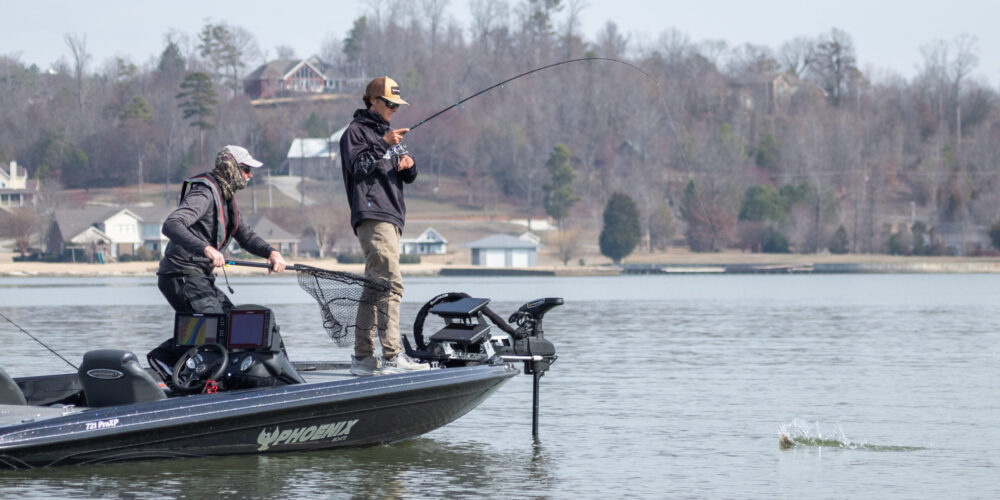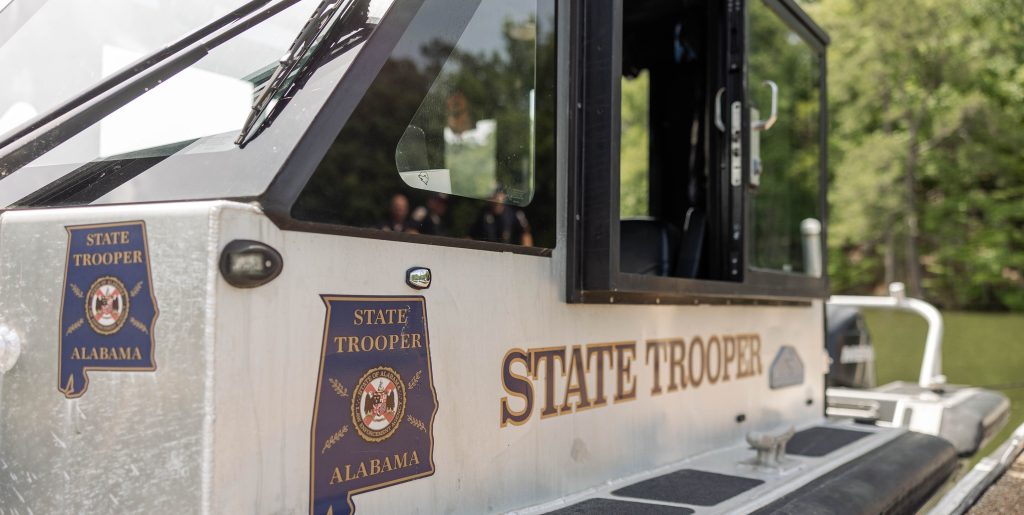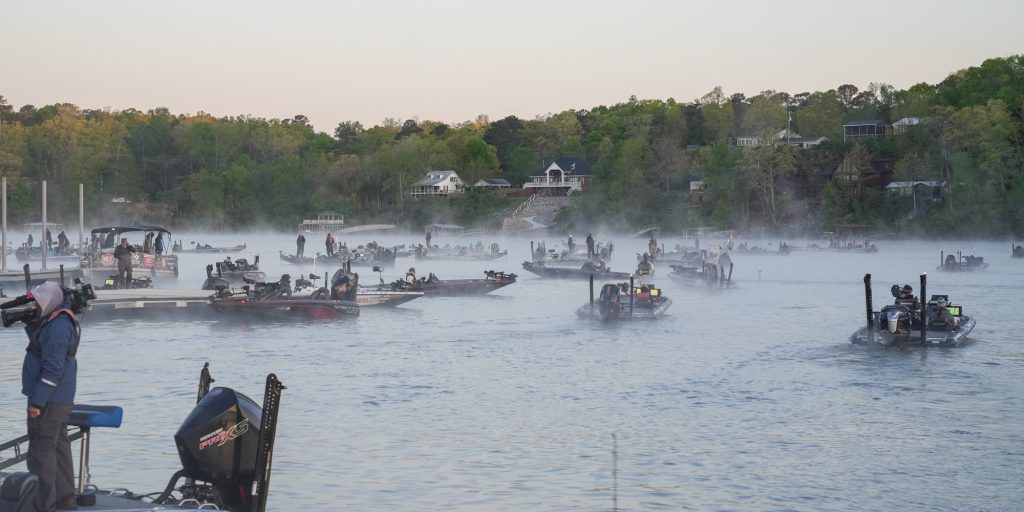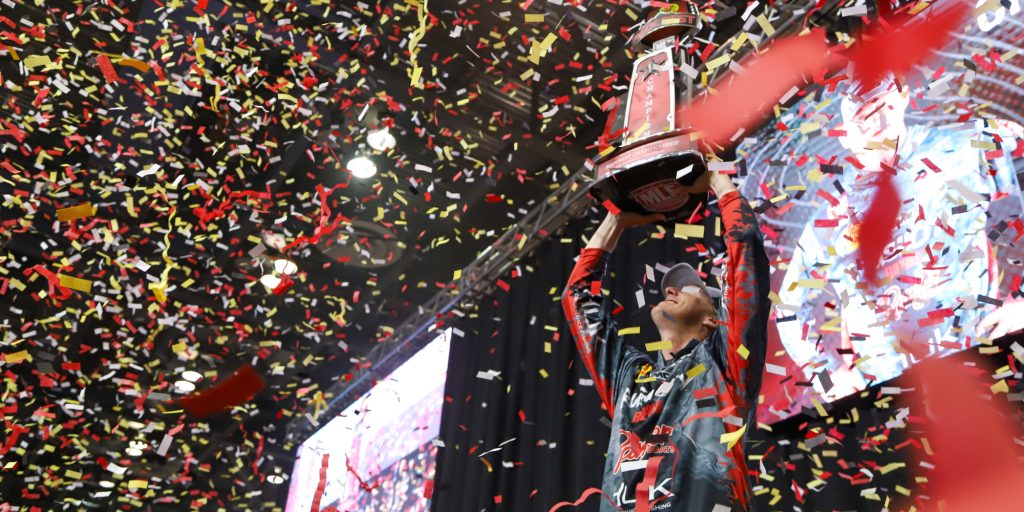GUNTERSVILLE – In late October 2018, Jacob Wall and his father, Steven, loaded their 1995 Nitro onto a trailer and set off on a 38-hour road trip. The younger Wall had qualified for the Toyota Series Championship on Lake Guntersville that year, which necessitated quite the commute from their Southern Oregon home.
They didn’t just make the journey so Jacob could compete, though. Amid the shakeup in professional bass fishing precipitated by the start of the Bass Pro Tour in 2019, Wall earned an invitation to join the then-FLW Tour. If he wanted to follow his lifelong dream of fishing as a pro, he knew he’d need to relocate – unless he wanted to make 30-plus-hour drives a dozen or more times each year.
So, he used the trip to scout the area for a new place to live.
Fast-forward nearly seven years, and Wall has not only found a home on the shores of Lake Guntersville, he’s continued to climb the professional ladder, now in his third year on the Bass Pro Tour. He’ll take to the lake Thursday in pursuit of the first-place trophy and $300,000 prize up for grabs at Bass Pro Shops REDCREST Presented by MillerTech, Major League Fishing’s championship event.
“I felt like this was an area that we could move to and be pretty central; be in an area that I could learn a lot, be immersed in an area that bass fishing was pretty much what everybody did,” Wall said.
Wall is far from the only angler to relocate to Guntersville. Like country music artists flock to Nashville, it’s become a popular hub for aspiring and established pros. Three other members of the Redcrest field – Chris Lane, Justin Lucas and Andrew Nordbye – will compete on their adopted home lake after moving to the area.
Those anglers all listed the fishing-town feel and ideal location of Lake Guntersville as reasons why they chose the area. But the primary draw is, of course, the fishery itself. Long one of the most prolific bass factories in the country, it regularly attracts top tournaments like Redcrest, allowing them to compete for big bucks in their backyard and hone the skills necessary to do so.

Wall relocated from the West Coast to Lake Guntersville about eight years after Lucas made a similar cross-country move from his home in Northern California in 2010. Nordbye left Northwest Missouri for Lake Guntersville in fall 2019.
Lane was one of, if not the first, touring anglers to move to Guntersville when he did so a few months prior to Lucas. Unlike the others, he already lived in a bass fishing hotbed in central Florida.
However, he was drawn to Guntersville by its geography, something all four anglers mentioned that separates the area from, say, Sam Rayburn/Toledo Bend or Lake Okeechobee.
Not only does the group reside near the waters of Guntersville itself, but the rest of the Tennessee River impoundments and the many other productive fisheries in Alabama are all nearby. They’re within a day’s drive of almost every regular tournament stop: Texas, Florida, the Carolinas, the Great Lakes region.
“I already knew what it was like traveling from one end of the country (for tournaments),” Wall said. “So, when we picked a place, it was strategically placed as far as what drive times might be.”
That’s not the only draw of Lake Guntersville, though. Lucas noted that the scenic foothills of the nearby Appalachian Mountains reminded him of home in California.
Plus, the communities around Guntersville live and breathe bass fishing. It’s a place where anglers can be around and bounce ideas off other anglers, where local businesses understand the sport and are willing to provide sponsorship support, where it’s always possible to jump in a tournament against quality competition.
“Moving from Missouri in the northwest corner, not many people knew what professional bass fishing was,” Nordbye said. “Down here, even if they don’t fish, they know about it and know what it is and how big it is. It’s just a well-known thing down here.”

While Wall’s first visit to Lake Guntersville wooed him enough that he decided to move there, he didn’t exactly fall in love with the lake right away. In fact, for the first few months he fished it regularly, he said he “hated it.”
Wall had heard the tales about Tennessee River ledge fishing, and he wanted to experience it for himself. Coming from fishing mostly natural lakes or highland reservoirs out west, though, he had little idea what to look for in terms of offshore structure. He remembers days in which he’d spend eight or nine hours idling and casting with nothing to show for it.
“It wasn’t great at the beginning,” Wall said. “It was awful, to be completely honest with you. I’d have terrible days out there. I was complaining to my mom and dad about how I hated the lake. ‘How is it, how do you like Guntersville?’ And I was like, ‘I hate this lake.’ And they were like, ‘Why?’ And I was like, ‘Because I can’t catch anything.’”
Slowly, he started to figure it out, to the point that he now considers fishing offshore one of his strengths. In fact, the last time the Bass Pro Tour visited Guntersville – May 2023 – Wall plied offshore ledges en route to a runner-up finish.
While perhaps not quite as extreme, each of the other Lake Guntersville transplants offered similar examples of how living on the lake has broadened their skillsets and made them better anglers. Lucas said he’s improved at fishing both grass and current. Nordbye qualified for Redcrest by winning a Tackle Warehouse Invitationals event on Kentucky Lake last year, during which he used his Tennessee River-honed electronics prowess to find smallmouth spawning on offshore bars.
That’s part of Guntersville’s appeal: It offers opportunities for anglers to do just about everything, from fishing heavy current to vegetation to shallow rock to offshore structure. With very few exceptions, if there’s something these anglers need to practice, they can do it without traveling.
“I think the biggest thing about spending time on Guntersville is that it will make you a very versatile fisherman instead of one-dimensional,” Lane said. “From drop-shots to swimbaits to glide baits to flipping heavy grass to casting topwaters to fishing ledges, it’s got it all.”

For the first time in a while, Nordbye admits he’s feeling some nerves in advance of Redcrest. That’s not just because this will mark his first time competing in a tour championship. He understands what a rare opportunity it is to contend for $300,000 on a lake he knows so well.
“This is about one of the only tournaments in a while I’ve felt nervous for,” he said. “I think it’s excitement building up, and (Guntersville) is hopefully going to live up to how good it’s been in April on years past. Nervous because family is all coming to town and just the biggest event yet – and fishing against the top group of anglers.”
Familiarity with the playing field has been a boon in recent editions of Redcrest. Each of the past two winners, Bryan Thrift on Lake Norman and Dustin Connell on Lay Lake, prevailed on their home fisheries. In addition to the four transplants, a few other competitors who live on or near the lake will have a chance to keep that streak alive in 2025.
However, competing at home can also come with drawbacks. Lane, who has fished a Bassmaster Classic on Guntersville, said “the pressure has gotten to me” in some past big events on the lake.
Plus, given the timing of this event, the locals expressed pessimism about having much of an edge. With bass likely to be either moving up shallow to spawn or already on beds, Lucas thinks they’ll be easy to find regardless of prior Guntersville experience.
“I don’t think it matters where you’re from in the country,” Lucas said. “I think if you come to Guntersville when we’re going there, you’re going to figure out how to catch bass. Because every single fish in the lake will be up in the top 8 feet of water.”
The others echoed that sentiment. As a result, none spent an unusual amount of time scouting the lake before it went off-limits. They figure the bass will be concentrated in completely different areas than they were a month ago – and potentially different than past springs, too. Where the eelgrass grows (and doesn’t) changes year to year, which alters where the fish spawn, so it’s important not to rely on history at the expense of breaking down the fishery in real time.
“I spent some time out there – not a ton,” Lucas said. “I don’t want to just go off of history with stuff in this event, so I tried not to spend an overkill amount of time. But some things that I know that the fish might be on, I went out there and looked for some of those things in areas that I know that they typically use.”
Lane said he spent some time in recent months trying to find potential spawning areas that don’t get a lot of pressure. With only 50 anglers taking on the 75-mile lake, he’s not so much worried about sharing fish with his competitors as he is the recreational anglers that swarm Lake Guntersville every weekend.
“I think the biggest thing is this lake gets a massive amount of pressure; and I think that being able to key in on a little zone that maybe a boat is not fishing or 10 boats aren’t fishing,” Lane said. “With the all-you-can-catch scenario, it’s going to take a lot of weight, so you’re going to need to know where you can pick up a couple of fish and they haven’t already been caught or pressured.”
Ultimately, the biggest advantage might be the comfort of fishing close to home with support systems nearby, especially amid all the extracurricular events that surround Redcrest.
“I think it’s going to be a really good event,” Lucas said. “There’s going to be a ton of fish caught. And anytime you can sleep in your own bed for a tournament, that’s pretty special in its own way.”
Mitchell Forde writes for Major League Fishing.


